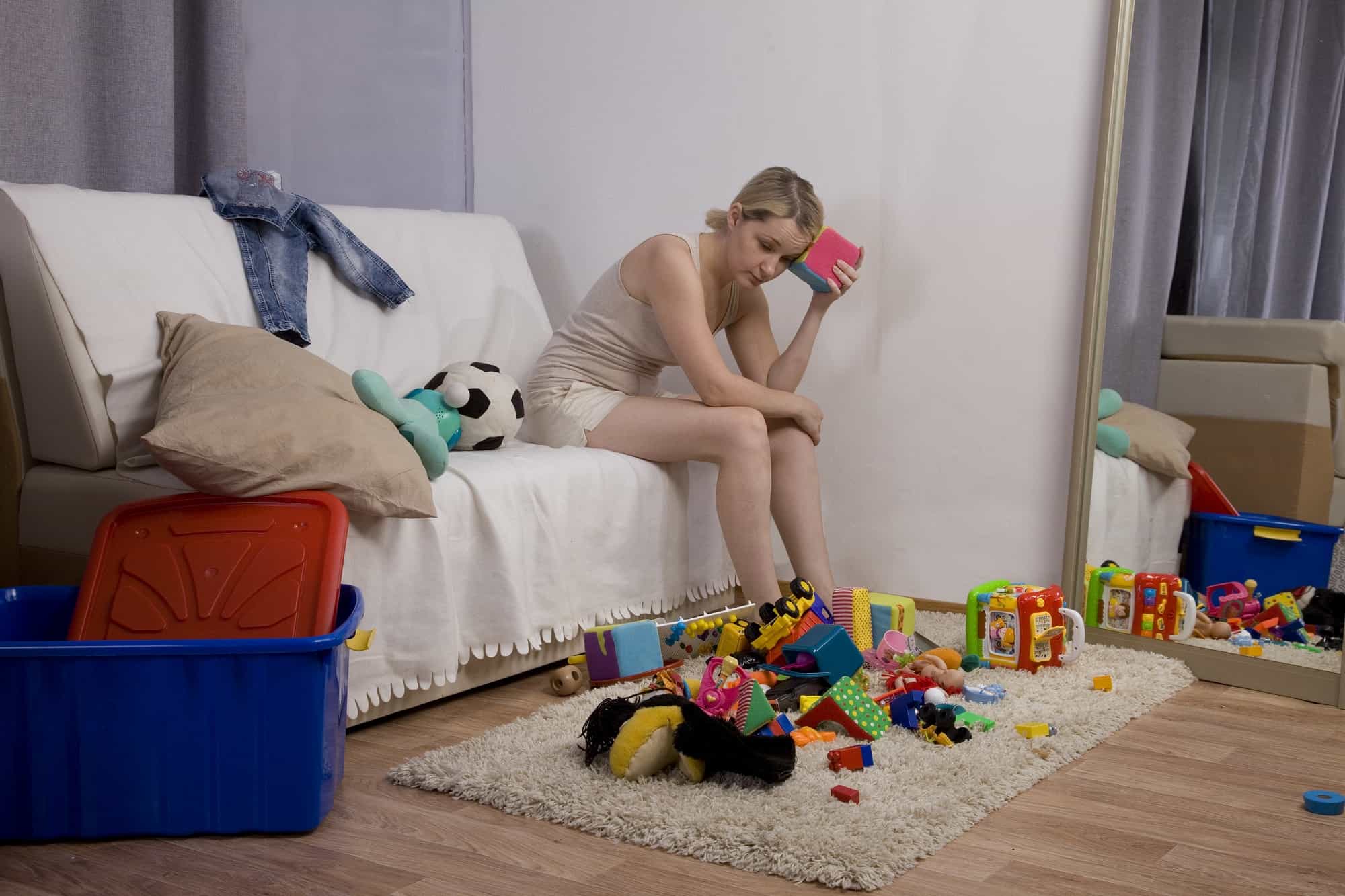I don’t know about you, but it seems as if I stay home more than I used to. It’s easier to have things delivered than spend hours shopping, doesn’t it? And, as winter approaches, it can feel more challenging to get out. And to be honest, even as an extrovert, the crowds can feel overwhelming this time of year. I want to share some helpful ways to not feel lost when you’re an extrovert. Whether you’re home by choice or by chance.
First, let’s get something straight about the difference between extroverts and introverts.
When it comes to the core differences between introverts and extroverts, it isn’t about how well you get along with people. So being shy or not enjoying lots of people doesn’t necessarily make you an introvert. And, no, just because you’re a people person doesn’t make you an extrovert. In fact, I witness that a lot of introverts have better people skills.
Because my go-to personality test for getting to know yourself is the Myers-Briggs Type Indicator, I look at the differences between the I and the E.
Extroverts gain energy by being around other people while introverts need more alone time to recharge their batteries. The other key difference is how thoughts are processed. Introverts tend to figure out what they think before they speak. While extroverts often have to speak to figure out what they really think.
Now, here’s twelve ways to help yourself not feel lost when it’s cold outside and you’re staying home more often.
One – Don’t Shame Yourself for Not Being an Introvert
Just like my initial reaction to all the introverted means, don’t feel bad that you aren’t an introvert. And therefore, better equipped to handle being isolated from most of the outside world. So, no shaming yourself. Or wishing you were wired differently. Accept that you are YOU. And, in fact, now may be a good time to work through all the things your inner critic says to you.
Being an extrovert doesn’t make you less capable, so no shame.
Two – But Do Acknowledge Your Feelings
JB is a tried and true introvert. And there are times that I have felt envious of his ability to simply BE at home for long stretches of time without getting antsy. Like during the months between Christmas and New Year’s and he’s happy to never leave the house.
So, allow yourself to feel envious of your introverted friends. Remind yourself that it’s ok to feel lost. And a note, too: acknowledge that you are probably grieving right now. It’s so important to allow ourselves to feel our feelings. Because, when we FEEL them, they can move through us more easily. Otherwise, they just linger and fester.
Note: even if you are a “thinking” type (ENTJ, ENTP, ESTJ, or ESTP) that doesn’t mean you don’t have strong feelings. Acknowledging your feelings is just as critical for you as it is for “feelers”. If you are a thinking type, it may be easier to FEEL your feelings if you get logical and clearly identify them first.
Three – You May Feel Lost and Frustrated Because You’re So Tired All The Time
Extroverts need to interact with others in order to charge their batteries. So, even if you’re surrounded by your family, you probably aren’t getting enough external stimulation to charge your energy stores. So, even if you are getting in what seems like enough sleep, it may not be everything you, my dear extrovert, need in order to feel energetic.
So, yes, you’re going to feel tired. But rather than feel frustrated, please grant yourself some grace.
Four – You Probably Need to Talk About It
Despite that fact that we sit down every evening and chat during “wine hour”, sometimes I just need to TALK more. That’s because introverts prefer to really think about things before talking about them. Whereas me, as an extrovert needed to talk. About everything. Don’t beat yourself up for needing to talk about everything. You need to talk about it because speaking words out loud is how you figure out what you think.
So, yes, even if you are a “feeler” (ESTJ, ESFJ, ESFP, or ENFP) that doesn’t mean feeling your emotions are enough. In order to not feel lost and get clear on how to manage your mind, you may need to speak words out loud in order to figure out what you think.
If you don’t want to overwhelm your family members, find a friend that can listen to you. One of my go-to ways to do this personally is use of the Voxer App. Several of my closest friends use Voxer to leave voice messages to each other with the agreement that the other friend will listen when she can. And skip over messages if it’s too much to handle on that particular day. Rather, it’s a way to allow us all to speak (or ramble) what’s happening. That way, we can better manage our minds.
Five – Your Family Members Can’t Be Your Only People
If you are living with an introvert, you are probably aware of how easily they get “full up” with conversation because a little goes a long way. This doesn’t mean they don’t want to communicate with you. Nor does it mean they don’t love you enough to listen to you. Be compassionate and understand that they need to manage their mental health and emotions, too! As an introvert, they just have different needs than you.
And even if you are living with other extroverts, it’s perfectly normal if you are tired of talking to them. Or them talking to you!
What too many people fail to understand is that whether family members are introverts or extroverts, we all need human connection outside of our immediate family members. Even if you see your significant other as your best friend and/or soul mate, that doesn’t mean that they can fulfill all the needs you have for friendship, conversation, and companionship.
That adds way too much pressure on your loved ones to fulfill all your needs. AND it puts way too much pressure on you to both fulfill all the needs of your family when it comes to social interactions. So, cut yourself some slack if you are feeling lonely for people that live outside your house.
To help you better manage your mind and emotional help, don’t be afraid of scheduling regular phone or video calls with friends or other family members.
Six – Your Old Tricks for External Interaction May Not Work Right Now
When I first moved to Ohio, I didn’t really know anyone except JB. In order to charge my extroverted batteries, I turned my errands into interactions. For me, that looked like making conversation with the deli clerk and the butcher. Or striking up a conversation with the fellow post office waiter. These colder days, though, I am doing a lot more delivery which means I don’t leave the house for even essentials like toilet paper. And I’m also doing a lot of pickups for groceries and that sort of thing, which means I pretty much just say hello to the person bringing things out to the car.
This doesn’t mean that all is lost, it just means you need to make peace with the fact that you can’t fulfil your batteries with errands.
Seven – Move Your Body When You Feel Lost or Restless
I’m sure you already know this, but when you begin feeling lost or anxious, moving your body can help. Get up out of your desk chair and walk around the house. Or do some jumping jacks or push ups. If you still feel restless, clean something.
Though I would never tell you that you need to get in shape as the new year approaches, getting some exercise will be helpful to managing your extroverted mind. And helping recharge your batteries a bit.
Eight – Speaking of Moving Your Body: Get Outside if You Can
If’s it’s sunny – even if it’s cold – bundle up and get outside for a walk. There is something particularly grounding about allowing your feet to touch the earth. Though it isn’t the same as having a conversation with a beloved friend, being a part of nature can help recharge your batteries.
So, if you feel lost or a little hopeless, the outdoors can be especially helpful to your extroverted soul right now. Watch the birds or take a nice long look at the flowers. Engage your imagination by naming the squirrels in your yard. Or making up stories about them. The combination of fresh air, Vitamin D, and engaging your mind will help you recharge a little bit.
Nine – Know that You Probably Feel Exhausted
One of my very extroverted clients asked why, oh WHY she was so exhausted by dinnertime. The truth is, without being about to be out in the world interacting with others, your batteries probably won’t get fully charged. Remember that as an extrovert, you need to interact with other people. And even if you’re talking to people in your home, having daily Zoom meetings with friends or colleagues, or even having some socially-distanced conversations with a neighbor, it may not be enough for you.
It’s like plugging in your cell phone for twenty minutes to get a little extra battery life rather than letting it stay plugged in until it’s fully charged. So, don’t shame yourself if you feel lost and exhausted earlier during the day. Give yourself some grace, listen to your body, and just go to bed early.
Ten – Having the Television on in the Background May Help
If you’re used to being around others all day, then one way to simulate an office environment is to turn on the television. While I would never recommend this as a prime way to be productive, we are not in normal times. So, if you have a day when you feel lost or not productive, it could be because your house is too silent. This is a trick I’ve personally used in my decade-plus of working at home.
Now, in order to be truly effective as background noise rather than something to distract you, choose a show you’re familiar with. And preferably a show that has several seasons and also has well-paced dialogue.
Turn the volume down low enough that it’s not blaring. And the volume loud enough that you don’t get distracted trying to tune in. This will allow you to somewhat simulate being in an office or coffee shop.
While this may not be easy with everyone home, sometimes I’ll let a show play in a browser window and just wear my earbuds. That way, I am getting the noise level I need without keeping JB from working.
Eleven – Talk to Yourself
This is the perfect time to begin talking to yourself. No, not in having full conversations with yourself. Rather, start posting on Instagram Stories and talk to the camera. Or start a YouTube Channel. Not necessarily as a way to promote your business – though it could help. Instead, use this as an opportunity to learn how to be in front of the camera.
Why I suggest this for extroverted folks is because it is allowing you to interact, face-to-face with someone: YOU. The bonus is that if you allow your social media friends to see you, it offers some connection. And while it isn’t the same as a conversation with a friend, it can help trick your extroverted mind into seeing it as interaction. AND helps you with the talking-out-loud to figure out what you think part of how you’re wired.
If you aren’t comfortable sharing it with your social media followers, know that Instagram allows you to restrict viewing of stories to a “close friends” list. Which can be empty. And YouTube allows you to upload unlisted videos.
Twelve – Check in on Your Introverted Friends
Just because some of your friends may be introverted, don’t assume that they are thriving when the colder months keep them inside more. So, schedule a Zoom happy hour or book club with your introverted friends. Though introverts need a lot of quiet time, that doesn’t mean they don’t need human connection. When you check in, you may find they feel lost. Or maybe just need to talk, too.
One of the great things about being an extrovert is that you are probably a good conversation starter. Consider that introverts may feel extra isolated, too right now. But it may take you, the extrovert, to invite them into that conversation.
While I know that you may not only feel lost, but frustrated and lonely in the winter months, remember spring is always coming.
There is no shame in admitting that you feel lost or out of sorts. You don’t have to put on a brave face and pretend that social distancing isn’t challenging for you. Just know that if you go into this time with some awareness about how you are wired, you’ll be able to better manage your own mind. And that, my dear, can make the difference between feeling as you are thriving at times rather than barely hanging on.
Want to learn more tips and tricks for loving your life no matter what?
Snag a free workbook and get inspiration on all the ways to love your life even more.
>>Click Here to Discover Additional Strategies for Keeping Your Life on Track <<









